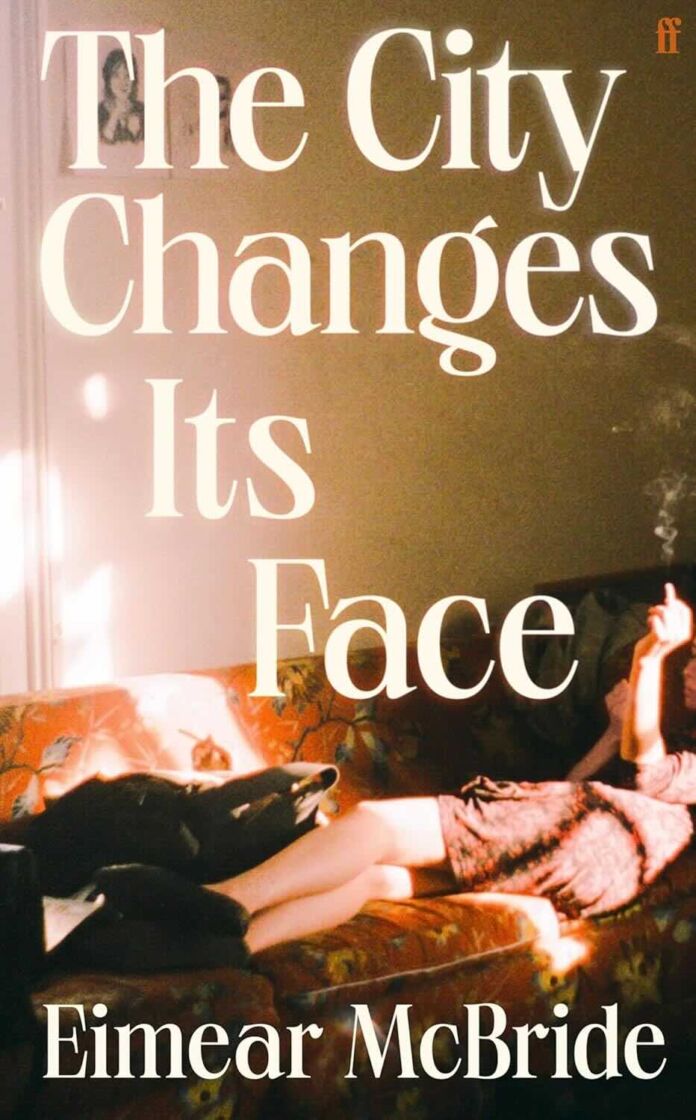Eimear McBride’s latest novel, “The City Changes Its Face,” is an exquisite exploration of love’s precarious balance between passion and practicality. Set in the rain-soaked streets of Camden in 1996, this intimate portrayal of a relationship at its turning point showcases McBride’s remarkable ability to capture the raw essence of human connection.
The Dance of Two Hearts
The story centers on Eily, a 20-year-old drama student, and Stephen, a 40-year-old actor, as they navigate the complexities of their two-year relationship. Through McBride’s signature stream-of-consciousness style, we witness their love affair unfold in real-time while simultaneously delving into their shared past. The narrative primarily takes place during one December night in 1996, but like memory itself, it weaves seamlessly between different timeframes, creating a rich tapestry of their relationship.
Masterful Prose That Mirrors the Mind
McBride’s writing style, which earned her acclaim in “A Girl is a Half-formed Thing” and “The Lesser Bohemians,” reaches new heights here. Her prose is simultaneously poetic and raw, flowing like thought itself:
“The city changes its face as I tap at my teeth. Rain going delinquent beyond in the street and all over him, closing the door.”
This opening line sets the tone for the entire novel—immediate, intimate, and intensely personal. The author’s ability to capture the immediacy of thought and feeling while maintaining narrative coherence is remarkable, though occasionally challenging for readers unfamiliar with her style.
Themes That Resonate
Age and Experience
The twenty-year age gap between Eily and Stephen serves as more than just a plot point. It becomes a lens through which McBride examines power dynamics, personal growth, and the nature of love itself. The arrival of Stephen’s teenage daughter Grace adds another layer of complexity to this examination.
Art and Identity
Both protagonists are actors, and the novel skillfully explores how performance bleeds into personal life. Stephen’s autobiographical film project becomes a catalyst for deeper revelations, while Eily’s growing dissatisfaction with drama school hints at larger questions about authenticity and self-expression.
The Weight of Secrets
Perhaps the most compelling aspect of the novel is its exploration of secrets—both kept and revealed. The central crisis of the story emerges from Eily’s inability to share a crucial truth with Stephen, leading to devastating consequences.
Technical Brilliance
McBride’s technical achievements in this novel deserve special mention:
- The seamless time shifts between present and past
- The masterful use of internal monologue
- The physical geography of Camden becoming a character itself
- The careful balance between dialogue and introspection
Minor Shortcomings
While the novel is predominantly successful, there are occasional moments where:
- The stream-of-consciousness style might alienate some readers
- Certain secondary characters feel underdeveloped
- The pacing in the middle section occasionally slows
Comparative Context
Fans of McBride’s previous works will find familiar stylistic elements here, though “The City Changes Its Face” feels more controlled than “A Girl is a Half-formed Thing.” The novel sits comfortably alongside other contemporary works exploring complex relationships, such as Sally Rooney’s “Normal People,” while maintaining its unique voice.
Cultural Significance
The 1996 setting is more than just temporal backdrop—it captures a specific moment in London’s cultural history, with references to the changing face of Camden Town and the evolving theatrical scene. This historical specificity adds depth to the universal themes of love, trust, and self-discovery.
A Matter of Impact
What makes “The City Changes Its Face” particularly powerful is its unflinching examination of love’s complexities. McBride refuses to offer easy answers or moral judgments, instead presenting her characters in all their flawed humanity. The result is a story that feels both intensely personal and universally relevant.
Final Verdict
“The City Changes Its Face” is a remarkable achievement that confirms McBride’s position as one of our most innovative and insightful contemporary novelists. While its experimental style may not appeal to every reader, those willing to engage with its unique approach will find a deeply moving and thought-provoking exploration of modern love.
For Readers Who Enjoy:
- Experimental literary fiction
- Complex relationship dramas
- Stream-of-consciousness narrative
- London-set stories
- Explorations of art and identity
This novel will particularly resonate with readers who appreciate:
- Psychological depth in character development
- Innovative narrative techniques
- Authentic portrayals of creative lives
- Complex emotional landscapes
- Urban literary settings
Beyond the Page
McBride’s novel invites readers to reflect on their own experiences of love, secrecy, and self-discovery. It’s a book that stays with you long after the final page, prompting continued contemplation of its themes and implications.
The city may change its face, but the human heart, with all its complexities and contradictions, remains eternally fascinating. McBride has captured this truth in a novel that is both technically ambitious and emotionally resonant.





